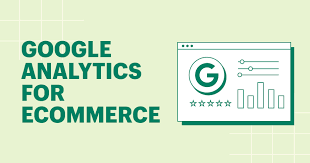
Analytics has become a cornerstone of modern business strategy, offering invaluable insights that drive informed decision-making and fuel growth. In today’s data-driven world, businesses that harness the power of analytics gain a competitive edge by understanding their customers, operations, and market dynamics like never before.
Analytics is the systematic analysis of data to uncover meaningful patterns and trends. By leveraging advanced tools and techniques, businesses can extract actionable insights from vast amounts of information generated through various channels such as websites, social media, sales transactions, and more.
Implementing analytics offers numerous benefits to businesses across industries:
There are various types of analytics that cater to different business needs:
As technology continues to advance, the future of analytics holds even greater promise. Artificial intelligence (AI) and machine learning capabilities will further enhance predictive analytics accuracy, while data visualisation tools will make complex insights more accessible to non-technical users. Embracing these innovations will be key for businesses looking to stay agile and competitive in an increasingly data-driven world.
Analytics is the systematic analysis of data to uncover meaningful patterns and insights that drive informed decision-making. In the context of business, analytics plays a pivotal role in providing organisations with a deeper understanding of their operations, customers, and market dynamics. By leveraging advanced tools and techniques, businesses can extract valuable insights from vast amounts of data, enabling them to make data-driven decisions that lead to improved efficiency, enhanced customer experiences, and competitive advantages. In today’s fast-paced and highly competitive business landscape, analytics is not just a tool but a strategic imperative for businesses seeking sustainable growth and success.
Businesses can reap a multitude of benefits from implementing analytics into their operations. By harnessing the power of data analysis, businesses gain valuable insights that drive informed decision-making, enhance operational efficiency, and improve customer engagement. Analytics enables businesses to identify trends, patterns, and opportunities that might otherwise go unnoticed, empowering them to tailor their strategies for maximum impact. From optimising resource allocation to mitigating risks and staying ahead of market trends, analytics equips businesses with the tools they need to thrive in today’s competitive landscape.
In the realm of business analytics, understanding the various types of analytical approaches is crucial for unlocking valuable insights and driving strategic decision-making. Businesses commonly utilise descriptive analytics to examine historical data trends, predictive analytics to forecast future outcomes, prescriptive analytics to recommend optimal actions, and diagnostic analytics to uncover root causes behind specific events. Each type serves a distinct purpose in helping businesses gain a comprehensive understanding of their operations, customers, and market dynamics, ultimately guiding them towards sustainable growth and competitive advantage.
In the realm of analytics, a frequently asked question revolves around the tools and technologies commonly employed to extract insights from data. Businesses and analysts often rely on a diverse array of tools such as Google Analytics, Tableau, Microsoft Power BI, and IBM SPSS to gather, analyse, and visualise data effectively. Additionally, programming languages like Python and R are popular choices for statistical analysis and machine learning tasks. Cloud-based platforms such as Amazon Web Services (AWS) and Google Cloud Platform offer scalable infrastructure for processing large datasets. These tools play a crucial role in unlocking the potential of data analytics, enabling businesses to make informed decisions and drive strategic growth initiatives.
In the realm of analytics, a frequently asked question pertains to how businesses can safeguard data privacy and security while leveraging analytical tools. To address this crucial concern, businesses must implement robust data protection measures, such as encryption protocols, access controls, and regular security audits. Additionally, ensuring compliance with data privacy regulations like GDPR and CCPA is essential to maintain trust with customers and avoid legal ramifications. By prioritising data security at every stage of the analytics process, businesses can instil confidence in their stakeholders and foster a culture of responsible data handling.